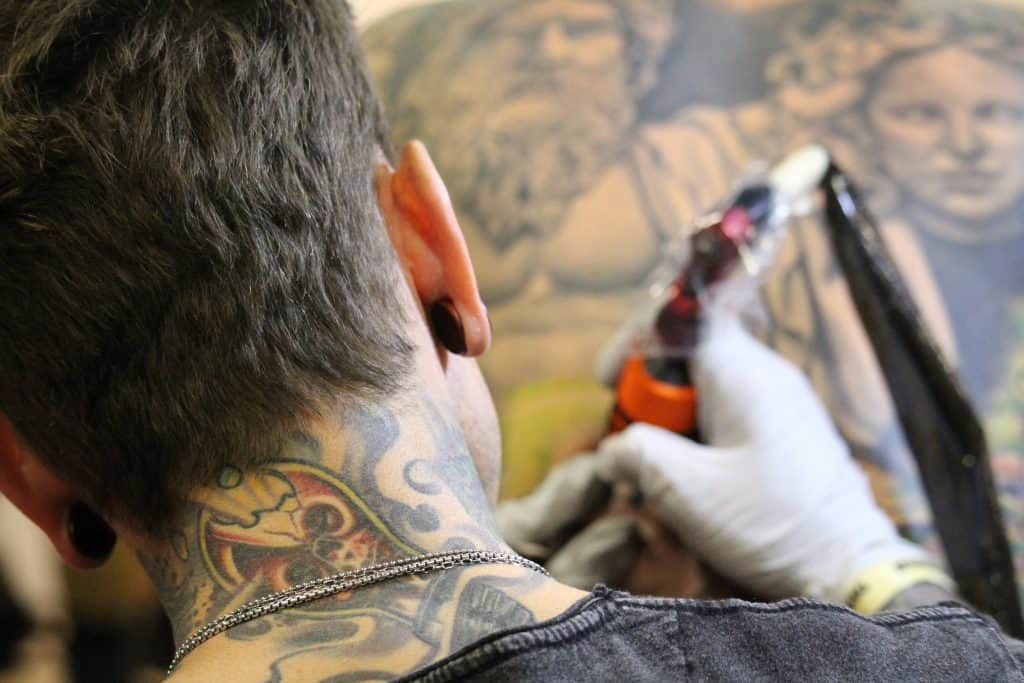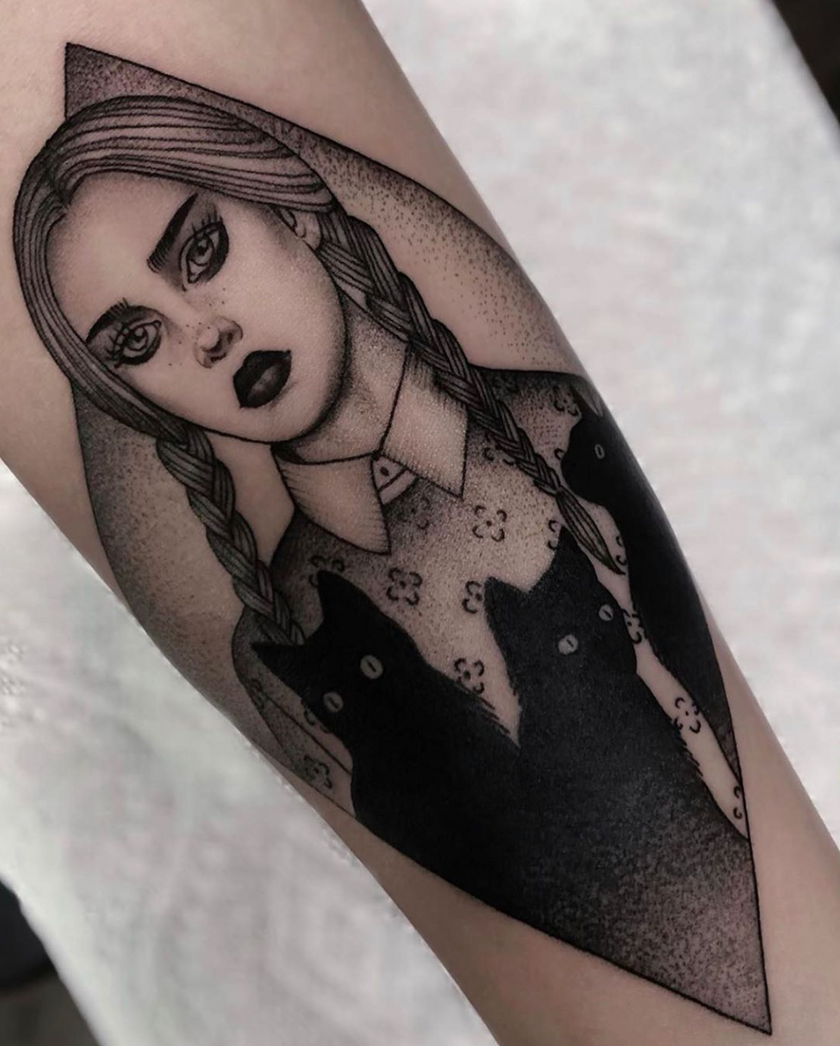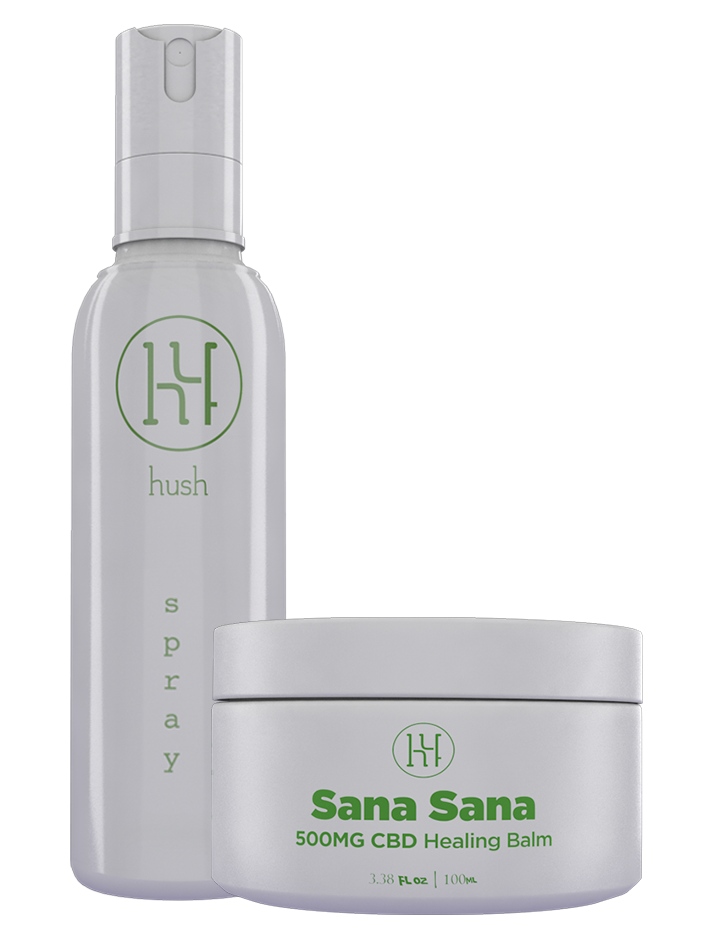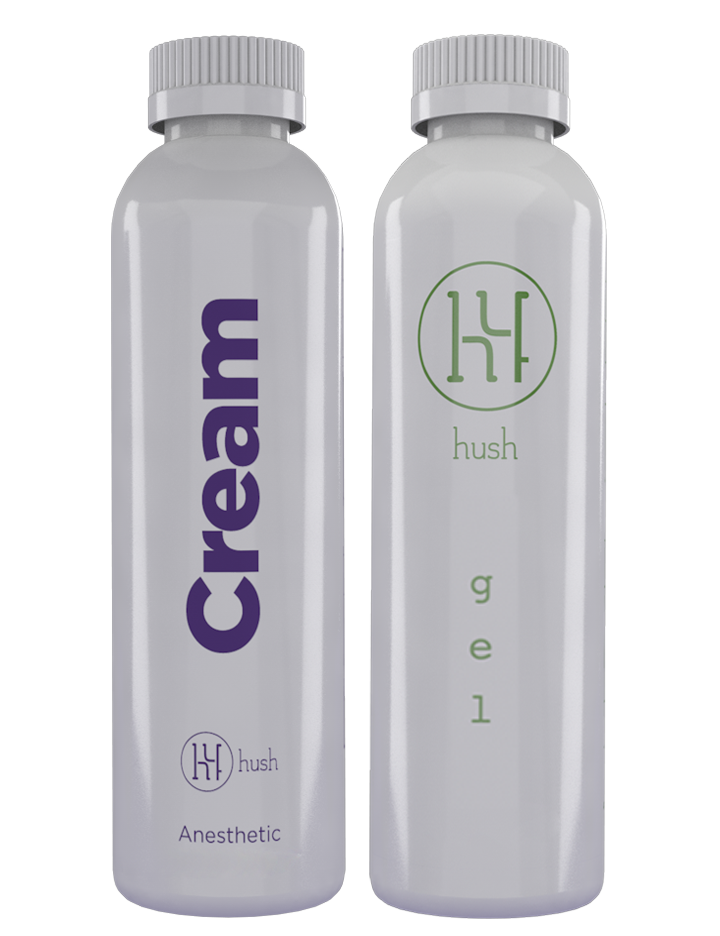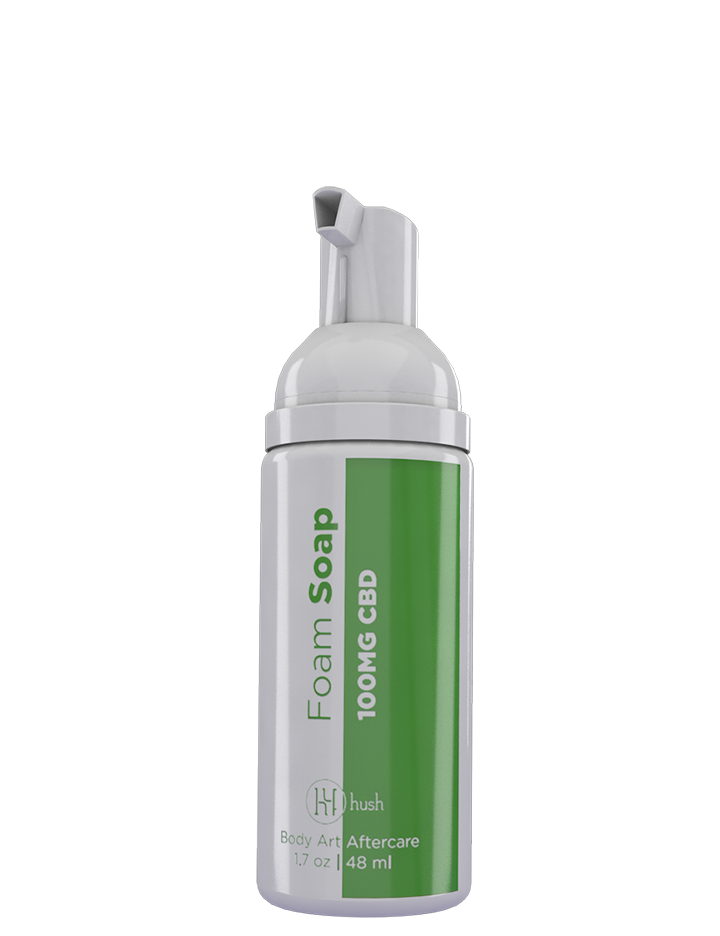
If you’re looking for at-home options for tattoo removal, tattoo removal cream might tempt you. But does it actually work? Today, HUSH investigates!
So you got yourself inked, and now you regret it. Things change over time, including your love for your tattoo. If you’re ready to say goodbye to your old ink, you might consider tattoo removal creams an option. But is this an effective method for tattoo removal?
Tattoo removal creamsare over-the-counter ointments meant to fade or eliminate tattoos after repeat applications, but do they really work? Today, we’ll investigate how tattoo removal cream works on different skin types. We’ll also cover some serious side effects and other not-so-great tattoo removal options.
At HUSH, we believe that getting tattoos shouldn’t be painful. So why should removing tattoos be any different? Keep reading to learn about topical options for getting rid of tattoo ink and pigment so you can make room for the new tattoo of your dreams.
How Do Tattoo Removal Creams Work?

There are a couple of different types of tattoo removal creams that each claim to work differently. Some creams will lighten your skin, and others will work to peel a layer of skin. Below, we’ll explore a few methods tattoo creams use to fade your tattoos away and tell you if they actually work.
Skin Lightening Tattoo Creams
By lightening your skin and reducing the melatonin in your skin, these types of tattoo removal creams will slowly fade the pigments on your epidermis and gradually fade your tattoo.
Often, skin lightening creams use an ingredient called hydroquinone, which is a type of skin bleaching chemical. These creams can’t quite penetrate the skin deep enough to remove ink from the dermis layer where tattoo needles reach, but they can slightly lighten the tattoo’s appearance on the epidermis.
While these creams won’t take your tats away completely, they might be able to brighten them up enough to get a cover-up or make them less noticeable so you can cover them with makeup.
Creams That Remove the Top Skin Layer
Other creams remove your current skin and replace it with a fresh layer. Like after sunburn, once a top layer of skin is eliminated, a new fresh layer replaces it. Continuous peeling in the desired area is meant to wear away at your tattoo gradually.
However, tattoo pigment goes into the dermis layer of the skin, not the epidermis, which is your outer layer. Even with powerful trichloroacetic acid (TCA) in many of these creams, it can’t quite reach the dermis and is thus ineffective at completely removing tattoos.
Whether you go for bleaching agents or creams that remove the epidermis, you’ll probably end up with a splotchy, uneven blob where your tattoo used to be. Or, the creams might not do anything at all.
Injectable Tattoo Removal
Some creams can be injected into the skin. The injected cream is meant to bond with your pigments, soften them and push them toward the surface. Once this occurs, it should form a scab which would then fall off.
However, these injectables are extremely painful and can cause serious complications. In many cases, you can experience thick scarring that makes it even harder to remove your tattoos in the future. We advise staying away from injectable tattoo removal.
Is Tattoo Removal Cream for You?
The great thing about these creams is you won't re-experience pain from a cover-up tattoo or the scarring and blisters brought about by laser tattoo removalif you have sensitive skin. However, these tattoo removal creams can be way less effective than other methods that healthcare professional professionals perform.
Is Tattoo Removal Cream the Best Option?
If you're truly unhappy with your tattoo and believe a cover-up tattoo or laser tattoo removal won't cut it or doesn't fit your budget, creams might be your best bet. If you're still not sure, check out this pros and cons list to help aid you. The decision is ultimately yours.
Pros
- It’s quick and simple: applyingthese creamsonly takes a few minutes, and consistency is key.
- Low cost: The cost of tattoo removal creams averages around $50 per bottle, while other treatment options can cost thousands.
- Sometimes, your post-application recovery can be minimal compared to laser tattoo removal.
Cons
- Some creams require the product to be injected into the skin.
- Creams can take a long time — sometimes, the process ranges as long as 90 days to see the desired effect.
- Consistency is everything. You must reapply more than once until pigment is minimal or completely gone or as prescribed by your doctor.
- A possible allergic reaction to active ingredients found on cream can cause intense side effects.
- Let's get physical: you need to consult your doctor to know which cream would work best for you, especially if you have allergies to certain ingredients.
- You should focus on proper care and maintenance to avoid infection.
What Are the Side Effects of Tattoo Removal Cream?
Since the FDA doesn’t regulate the ingredients in tattoo removal cream, people might experience certain side effects that they weren’t expecting. Skin lighteners can lead to discoloration, especially if you have a deeper skin tone.
If you’re allergic to an ingredient in the tattoo removal cream, you might get rashes, burning, or other topical side effects. Some people even end up with permanent scarring from tattoo removal cream.
What Are Other Tattoo Removal Options?

If you think tattoo removal cream might not be right for you, or if you’ve tried tattoo removal creams in the past and are looking o break out the big guns, these other tattoo removal methods might be for you.
Laser Treatment Tattoo Removal
Laser removal is one of the most effective ways to remove your tattoos. A powerful laser breaks up the ink underneath your skin using heat. You can experience blistering or bleeding after your sessions, but your doctor will teach you the proper aftercare, and it should clear up in a few days.
Laser tattoo removal takes several sessions to break up the tattoo over many months, so if you’re in a hurry, this might not be the removal method for you. Also, since you have to pay for so many sessions, laser tattoo removal can be expensive and fast.
These lasers can be pretty painful without numbing, but you can use a local anesthetic to let your tattoo and the pain melt away in a flash. Are you worried about the removal cost? Many laser surgery centers offer a free consultation so you can save up for your tattoo removal treatment.
Dermabrasion Tattoo Removal
With dermabrasion, a doctor will use an abrasive brush to scrape off your tattooed skin after numbing it. This method can cause irritation and cause some sensitivity over the week following the procedure, so make sure you’re taking proper care of your skin.
Surgical Excision Tattoo Removal
With surgical excision, a doctor uses a scalpel to scrape out your tattooed skin while you’re numb with a local anesthetic. This type of tattoo removal is very effective, but it can also leave a noticeable scar where the tattoo was.
If you’re removing a small tattoo, excision might be a great option that will only leave a tiny scar. However, surgical excision is simply out of the question if you’re looking to remove a large tattoo like a back piece or a sleeve. Go for dermabrasion or laser tattoo removal instead.
Conclusion
When it comes to skincare for your tattooed skin, we at HUSH are experts. When removing tattoos, we also know a thing or two.
Tattoo removal creams aren’t the most effective option, but they are one of the cheapest. Only you can decide what the best tattoo removal option is for yourself.
Sources:
9 Tips for Tattoo Removal | Cleveland Clinic
Tattoo & Birthmark Removal: Pigmented Lesions | Cleveland Clinic
Removal of traumatic and decorative tattoos by dermabrasion | NCBI
Laser Tattoo Removal: What It Is, How It Works, Side Effects
Laser Tattoo Removal - StatPearls | NCBI Bookshelf
Surgical Excision and Reconstruction of Tattoo Following Hypersensitivity - PMC | NCBI
